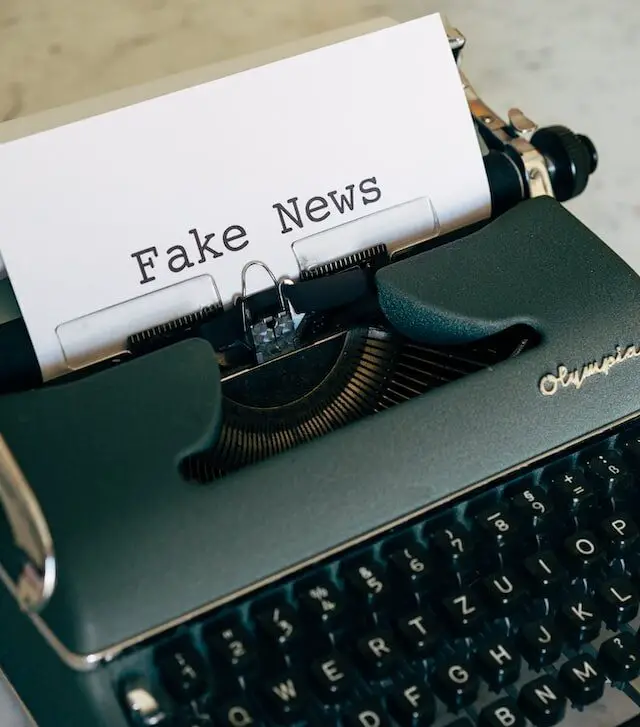Libel is written defamation, while slander is spoken defamation. Libel is considered to be more serious because it has the potential to reach more people and do more damage. Slander can still be harmful, but it generally doesn’t have the same impact as libel.
What is libel?
(Photo by Markus Winkler on Unsplash )

Libel is a form of defamation that involves the making of false and damaging statements about another person. Libel can be written or spoken, and it can be published in print or online. If you libel someone, you can be sued for damages.
Definition of Libel
Libel is defined as a written or published false statement that harms a third party’s reputation. In order to be considered libel, the statement must be made in a permanent form, such as written or recorded, so that it can be easily spread and communicated to others. This makes it possible for a large number of people to see or hear the false statement, increasing the chances that the statement will harm the individual’s reputation.
What is slander?
(Photo by Vitolda Klein on Unsplash )

Slander is a false and unprivileged statement that tends to injure a person’s reputation in the eyes of right-thinking members of society.
It is a form of defamation that involves making false and damaging statements about someone without any evidence to back up those claims. Unlike libel, slander is not a written form of communication. It’s usually spoken, but it can also be communicated through gestures or body language. If you slander someone, you can also be sued for damages.
Definition of Slander
Slander, on the other hand, is defined as a spoken false statement that harms a third party’s reputation. Unlike libel, slander does not need to be made in a permanent form and can be communicated orally. Slander is often considered to be more temporary in nature and less likely to cause long-term harm to a person’s reputation, as it is not easily spread and communicated to others.
The difference between libel and slander
Libel and slander are both forms of defamation, which is a statement that injures a third party’s reputation. The main difference between the two is the form in which the false statement is made.
Libel refers to a false statement that is written or published, such as in a newspaper, magazine, or on a website. It must be in a permanent form that can be easily spread and communicated to others, making it more likely to cause long-term harm to the individual’s reputation.
Slander, on the other hand, refers to a false statement that is spoken, such as in a conversation or through broadcast media. Slander does not have to be made in a permanent form, and is considered to be less serious as it is typically not easily spread or communicated to others.
(The difference between the two comes down to proof. With libel, there is usually some form of documentation or evidence that can be used in court. This could be a newspaper article, a blog post, or even a tweet. Slander, on the other hand, is more difficult to prove. It would require witnesses to come forward and testify that they heard the defamatory statements being made.)
In general, libel has more severe consequences and is considered to be a more serious offense, with potentially more severe legal consequences, compared to slander.
Both libel and slander can do serious damage to someone’s reputation. If you’re ever unsure about whether something you’re about to say or write could be considered defamation, it’s always best to err on the side of caution and consult with an attorney beforehand.
Legal Consequences of Libel and Slander
The legal consequences of libel and slander vary depending on the jurisdiction and the specific circumstances of the case. In general, however, those who are found guilty of libel may face severe consequences, including monetary damages, imprisonment, and other penalties. Slander, while still considered to be a form of defamation, is typically considered to be a less serious offense, with less severe consequences.
Proof of Libel and Slander
Proving that someone has committed libel or slander can be difficult, as it requires demonstrating that a false statement was made and that it caused harm to the individual’s reputation. In addition, it is important to establish that the statement was made with the intention of causing harm or with reckless disregard for the truth.
Protecting Yourself from Libel and Slander
There are several steps that individuals and organizations can take to protect themselves from libel and slander. These steps include seeking legal counsel, monitoring online and offline media, and taking steps to address any false statements that are made about them. In some cases, it may also be necessary to take legal action in order to protect one’s reputation and hold those responsible accountable.
Examples of libel
Here are some examples of actions that could be considered libel:
- Writing an article in a newspaper that falsely accuses an individual of a crime and publishing it, causing harm to the individual’s reputation.
- Posting a false and damaging statement on social media about an individual, knowing it to be false and intending to harm their reputation.
- Creating a fake online profile that falsely represents another person and posts defamatory statements, causing harm to the person’s reputation.
- Publishing a book that contains false and defamatory statements about an individual, causing harm to the person’s reputation.
- Using your website to spread false and damaging information about an individual or business, causing harm to their reputation.
- Creating a false and defamatory video about an individual or business and spreading it through various media platforms, causing harm to their reputation.
- Drawing and distributing a cartoon that depicts an individual in a false and damaging light, causing harm to the person’s reputation.
It’s important to note that in order for a statement to be considered libel, it must be false, made in a permanent form, and have caused harm to the individual’s reputation.
Examples of slander
Here are some examples of actions that could be considered slander:
- Speaking to others and making false and damaging statements about an individual’s character, causing harm to their reputation.
- Giving a false testimonial about an individual or business, causing harm to their reputation.
- Broadcasting false and damaging statements about an individual or business on radio or television, causing harm to their reputation.
- Making false and damaging statements about an individual during a public speech, causing harm to their reputation.
- Telling others false and damaging information about an individual during a telephone conversation, causing harm to their reputation.
- Making false and damaging statements about an individual to their employer, causing harm to their reputation and potentially leading to termination of employment.
- Spreading false and damaging rumors about an individual or business, causing harm to their reputation.
It’s important to note that in order for a statement to be considered slander, it must be false, made orally, and have caused harm to the individual’s reputation.
How to Prove Libel or Slander
Proving libel or slander can be challenging, as it requires evidence that the false statement was made, that it was false, and that it caused harm to the individual’s reputation. Here are some steps to prove libel or slander:
- Gather Evidence: Collect any written or recorded evidence of the false statement, including emails, text messages, audio recordings, or video footage. If the statement was made in a public setting, try to find witnesses who can confirm what was said.
- Establish the Statement was False: You must be able to prove that the statement was false. This can be done by presenting evidence such as factual records, expert testimony, or eyewitness accounts that contradict the false statement.
- Prove Harm to Reputation: You must show that the false statement caused harm to your reputation. This can be done by presenting evidence of any negative impact the statement had on your life, such as lost employment opportunities or damaged relationships.
- Show Intent: To prove libel or slander, you must also show that the statement was made with the intention to harm your reputation. Evidence such as emails or text messages that show the person intended to spread false information can be used to prove intent.
- Consult a Lawyer: Proving libel or slander can be a complex legal process. It’s advisable to consult with a lawyer who specializes in defamation cases to help you build a strong case and navigate the legal process.
What is proof of slander?
It’s important to note that the burden of proof lies with the individual who claims to have been defamed. In some cases, a public figure may have a higher burden of proof, as they are required to show that the false statement was made with actual malice, meaning it was made with knowledge that it was false or with reckless disregard for the truth.
Proof of slander refers to the evidence that is required to establish that a false and damaging statement was made orally, with the intention to harm an individual’s reputation, and that it caused harm to their reputation. In order to prove slander, the following must be established:
- The Statement was False: You must be able to prove that the statement was false. This can be done by presenting evidence such as factual records, expert testimony, or eyewitness accounts that contradict the false statement.
- The Statement was Made Orally: The false statement must have been made orally, as opposed to being written or published. This can include spoken words, radio broadcasts, or audio recordings.
- Intent to Harm Reputation: To prove slander, you must show that the false statement was made with the intention to harm your reputation. Evidence such as emails or text messages that show the person intended to spread false information can be used to prove intent.
- Harm to Reputation: You must prove that the false statement caused harm to your reputation. This can be done by presenting evidence of any negative impact the statement had on your life, such as lost employment opportunities or damaged relationships.
- Evidence of the Statement: You must have evidence that the false statement was actually made, such as witnesses who heard the statement, audio or video recordings, or written documentation of the statement.
It’s important to note that the burden of proof lies with the individual who claims to have been defamed. In some cases, a public figure may have a higher burden of proof, as they are required to show that the false statement was made with actual malice, meaning it was made with knowledge that it was false or with reckless disregard for the truth.
What is the punishment for libel and slander if proven guilty?
The punishment for libel and slander depends on the jurisdiction in which the crime was committed and the specific laws that apply. However, some common forms of punishment for those found guilty of libel or slander include:
- Monetary Damages: The person who made the false statement may be ordered to pay monetary damages to the person who was harmed by the statement. These damages can be compensatory, meaning they are intended to compensate the victim for their losses, or they can be punitive, meaning they are intended to punish the person who made the false statement.
- Correction or Retraction: The person who made the false statement may be ordered to publish a correction or retraction of the false statement. This can be in the form of a written statement, an advertisement, or an announcement in a newspaper or on television.
- Apology: The person who made the false statement may be required to issue a formal apology to the person who was harmed by the statement.
- Injunctions: An injunction may be issued to prevent the person from making further false statements or from repeating the false statement.
- Criminal Penalties: In some jurisdictions, libel or slander may be considered a criminal offense, and the person who made the false statement may face criminal penalties such as fines or imprisonment.
It’s important to note that the punishment for libel and slander can vary widely depending on the jurisdiction and the specific laws that apply. In some cases, the punishment may depend on the severity of the false statement and the harm it caused to the victim’s reputation.









